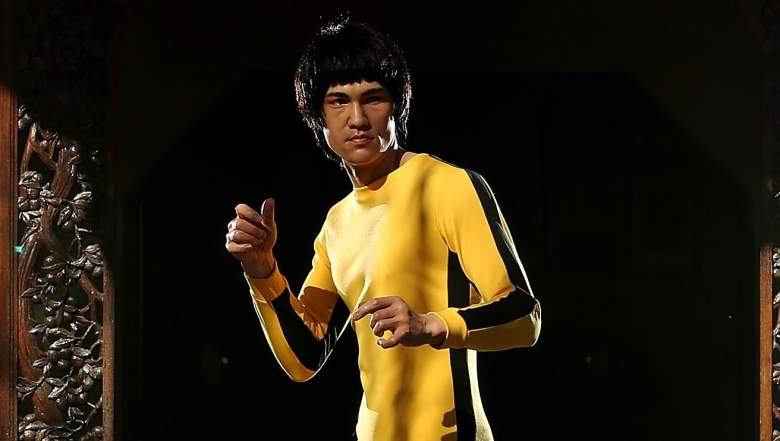
Getty A wax figure of Chinese actor, Bruce Lee.
The latest ESPN 30-for-30 documentary “Be Water” will explore the life and career of Bruce Lee — a martial arts pioneer, action star and cultural icon.
Be Water premieres Sunday, June 7, at 9 p.m. ET/PT on ESPN, and it will be on ESPN+ immediately following the premiere.
If you don’t have cable, here’s how you can watch Be Water live or on-demand on your computer, phone, Fire TV Stick, Rokue, Apple TV or other streaming device:
Heavy may earn an affiliate commission if you sign up via a link on this page
ESPN+
Starting immediately after the premiere, Be Water–along with every other 30 for 30 documentary–will be available on ESPN+:
Once signed up for ESPN+, you can then watch Be Water anytime on your computer via the ESPN website, or you can watch on your phone (Android and iPhone compatible), tablet, Roku, Firestick, Apple TV, Chromecast, PlayStation 4, Xbox One, Smart TV or other compatible streaming device via the ESPN app.
Hulu With Live TV
If you want to watch the documentary live as it premieres, ESPN is one of the 60-plus live TV channels included in Hulu With Live TV, which comes with a seven-day free trial:
Once signed up for Hulu With Live TV, you can watch Be Water live as it airs on your computer via the Hulu website, or on your phone (Android and iPhone supported), tablet, Roku, Apple TV, Amazon Fire TV, Chromecast, Xbox One, Nintendo Switch, Echo Show, or other streaming device via the Hulu app.
’30 for 30: Be Water’ Preview
The title for the documentary “Be Water” is based off a famous quote from Lee: “Empty your mind. Be formless, shapeless — like water. You put water into a cup, it becomes the cup. You put water into a bottle, it becomes the bottle. You put it in a teapot, it becomes the teapot. Water can flow or it can crash. Be water, my friend.”
Lee’s legacy is one of a martial artist, philosopher and cultural icon, with his name still being recognized world-wide today. But it wasn’t an easy path to stardom for Lee, who dealt with racism in Hollywood and complications in his career due to the way Asian men were being portrayed in film and television.
“The face of the Asian American or Asian male was very much the face of the enemy to a lot of Americans,” the film’s director Bao Nguyen told WBUR. “And so those type of foreign policy decisions and conflicts created these stereotypes and portrayals of Asians on screen as villains, as enemies.”
Sadly, Lee ended up passing away before his biggest film success “Enter the Dragon” due to a brain edema, possibly caused by a reaction to a prescription painkiller. He was just 32, but made an impact on future generations through his work.
“I was just blown away,” Nguyen told ESPN’s Jeff Wagenheim. “I’d never seen a lead actor who looked like me. I couldn’t get over the fact that he was the film’s hero. He wasn’t the villain. He wasn’t a sidekick. He was a confident leading man. Growing up in America, I was not used to seeing this type of depiction of Asian males.”
Nguyen takes a deep dive not just into Lee’s career but his life and struggles. While Lee is an icon, Nguyen wanted to humanize the martial arts legend and show a new side of him.
“He’s become more than just a man. He’s become an icon that anyone can project their story on,” Nguyen told ESPN. “But in order for heroes to become relatable, for people to really want to be like them, you have to know their human side. Their struggles. Their fears. You need to be able to say, ‘He had the same insecurities that I have, but he believed in himself and fought his way through it.’ I find that to be the most aspirational part of Bruce Lee.”
Lee made many friends along the way as well, including legendary Lakers big man Kareem Abdul-Jabbar, who credits Lee for helping him stay healthy during his NBA career.
“I first met Bruce when I was a student at UCLA looking to continue my martial arts studies, which I started in New York City,” Abdul-Jabbar told the Huffington Post. “We quickly developed a friendship as well as a student-teacher relationship. He taught me the discipline and spirituality of martial arts, which was greatly responsible for me being able to play competitively in the NBA for 20 years with very few injuries.”